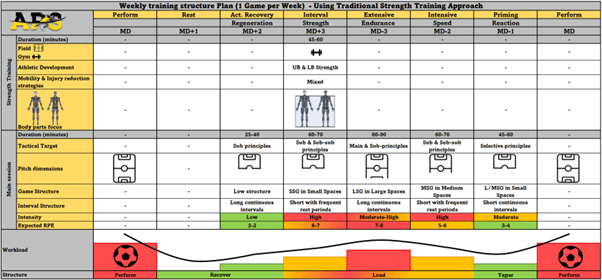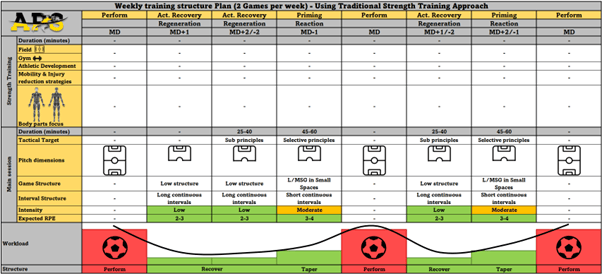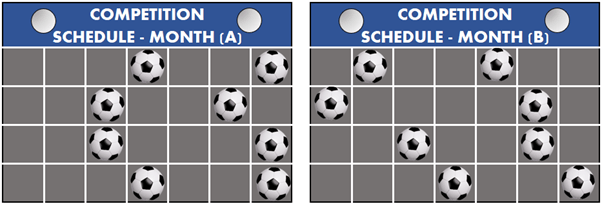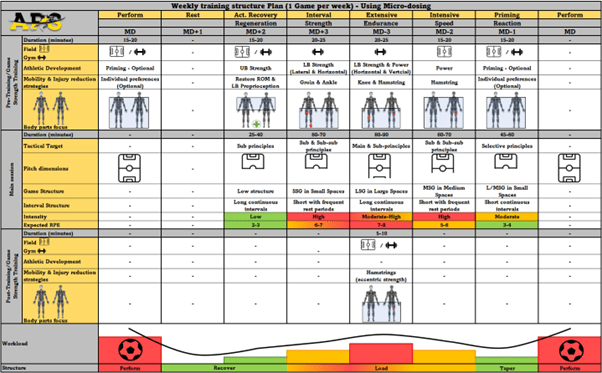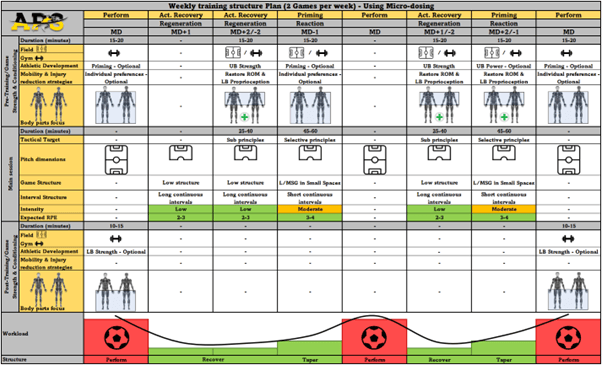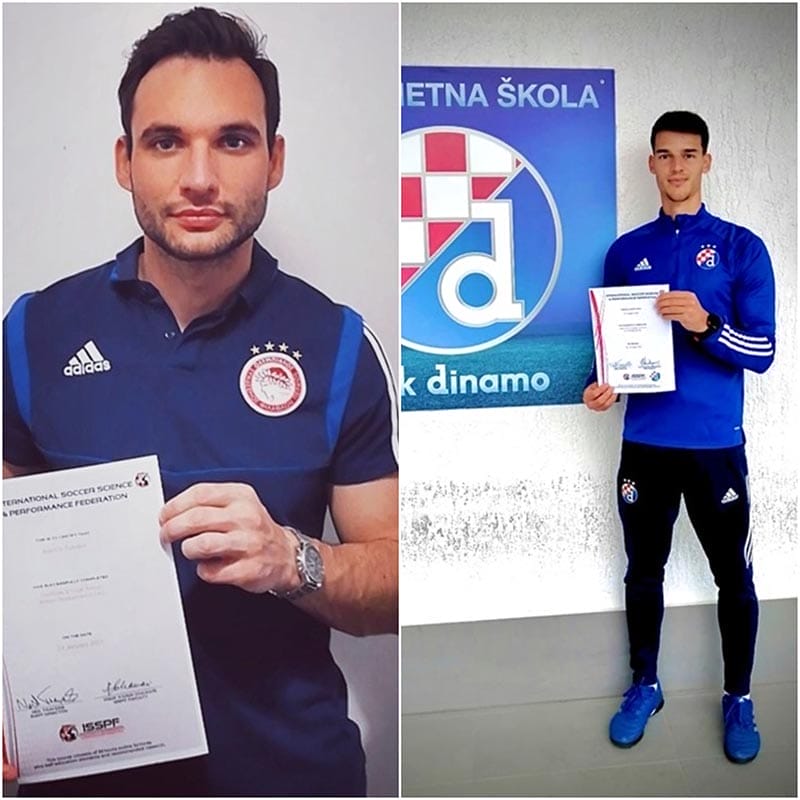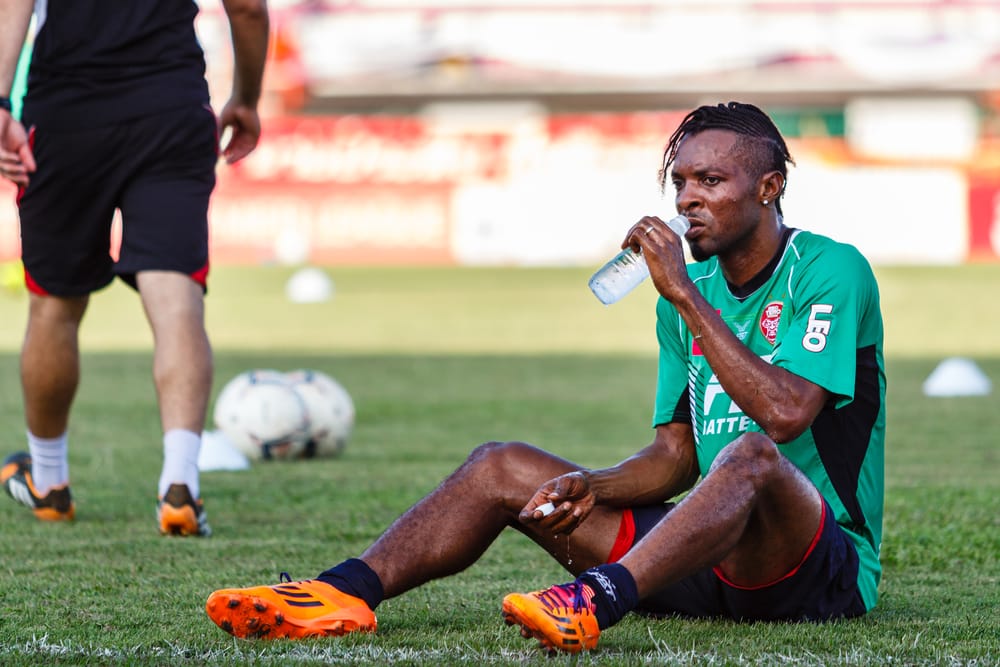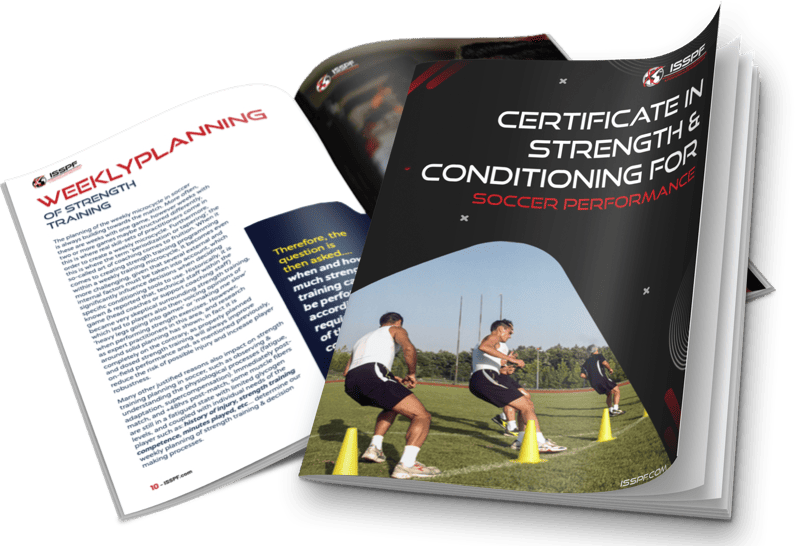Written by: Rafael Avraamides, MSc, CSCS (High Performance Coach)
As athletic development progresses through the professionalisation of coaching staff knowledge, strength & conditioning (S&C) and soccer science, the role of the power and conditioning, or high-performance coach is multi-faceted & specialist (Brewer, 2019). ISSPF faculty member, Clive Brewer has previously described how the role of the strength & conditioning coach in soccer should…
“…predominantly come down to ensuring that player programs reflect the delivery of speed, agility, conditioning and strength/power work to adequately prepare players for the demands of elite soccer, and deliver the critical performance moments as and when required…”
Developing an integrated S&C program is crucial to delivering the required program outcomes for players, and this coupled with a detailed exploration of the conditioning aspect of the process, especially across congested phases of the soccer season will be covered within this article.
Strength training research has shown to play an essential role in soccer from both an enhancement in player & team performance, as well as also being used as a tool for reducing soccer specific injuries. The traditional application of strength training in soccer typically involves 1 (or sometimes 2) longer based workouts mid-week consisting of several exercises targeted to improve different parameters associated with soccer performance and injury risk reduction.
However, from a practitioning perspective, this approach can at times prove to be problematic due to the time efficiency aspects in the training microcycle (methodology) and if performed incorrectly may increase the fatigue accumulation whilst resulting in muscle soreness.
These 2 key outcomes can for some players be an undesirable distraction for the up and coming training sessions as match day approaches, which then starts to influence player behaviour towards strength training during the season, especially during periods with less than 6 days between games.
As a way of possibly overcoming these foreseen issues, more teams have reported their adoption of a new approach where strength training is frequently micro-dosed across the training week or microcycle….however, what is meant by the term ‘micro-dosing’ strength training.
Note: Micro-dosing refers to the division of total training volume within a micro-cycle, across frequent, short duration bouts with the aim to maintain the benefits associated with traditional strength training and at the same time minimise the undesirable side effects. But before we deep dive into the: why, when and how of the application of this working methodology – it is vitally important to understand the typical application of traditional strength training blocks in a season and potential limitations that players, coaches & practitioning S&C coaches may face.
1 Game per Week
In this scenario a typical approach is to perform strength training once, at the middle of the week, so that athletes have enough time to recover from previous game and to ensure that the fatiguing effects associated with strength training will be fully diminished by the day of competition.
However, by condensing all strength related volume in 1 session, can result in excessive fatigue / soreness that can have a negative impact on subsequent training sessions, therefore minimising the room for athletic development and at the same time increasing injury risk.
Of course, some practitioners may argue that you can do a strength session with decreased volume and intensity to avoid the fatiguing effects, however we need to ask ourselves if this is enough to develop or even maintain strength related adaptations during the season?
2 Games per Week
In this scenario there is no room for any traditional strength training since there is not enough time to recover from game do a strength training session and recover from it until the next game. Therefore, strength training is omitted during this period and is reintroduced when competition schedule returns to 1 game per week.
Although this makes a lot of sense, we need to consider that many teams have this competition schedule for several weeks in a row. If strength training is constantly omitted for an extended period, it can lead to losing some strength related adaptations which can have a negative impact on both performance and injury.
Now that we have established the limitations associated with the application of traditional strength training in congested periods of the season let’s see the potential benefits of using a micro dosing approach and how it can address some of these limitations.
- Time efficiency. The micro dosing approach does not require a long-dedicated strength session to be performed as you can get away with 15-20 minutes every day which can act as part of activation/warm up. This is particularly important for teams that have limited time availability due to travelling.
- Daily exposure to strength stimuli allows athletes to ‘push’ when they feel fresh and ‘pull’ when they feel tired whereas with the traditional approach, this is not possible.
- Planning and scheduling of strength training is more flexible and efficient. The stimulus can be adjusted to prepare athletes for the demands of field training.
- By splitting up the workload in small doses the fatiguing effect of strength training is minimised.
- Appropriate application of micro-dosing can have a potentiation effect and can improve athletes’ readiness to competition/training.
- Higher frequency is more beneficial for motor learning.
Below is an example of how to structure strength training using the micro-dosing approach for scenario with 1 & 2 games per week.
As you can see micro-dosing is adjusted around the training needs of the coaching staff or pitch-based requirements, and can fit anywhere around the schedule of the team providing lots of windows of opportunities for player strength exposure.
It is important however that the working strength dosage is adjusted in order to not have a negative interference with soccer athletes’ readiness to train or compete.
In order to maximise the information provided & achieve the required outcomes when developing player performance, individual coaches, support staff and performance practitioners must understand the demands of the game imposed on the individual players, position requirements and fatigue-related impact of both training & competitive match play, all of which are highlighted within the ISSPF online course Certificate in Strength & Conditioning for Soccer Performance.
Future maximization of S&C in soccer certainly requires a higher individual needs analysis & programming of the training process, in order to enhance the physical preparation, robustness & positional requirements of the soccer athlete.
What Next?
The demand for sports science, S&C coaches, physiotherapists, and performance & coaching specialists in soccer & team sports is growing year upon year.
Thousands of students are leaving university with a sport science degree, physio or therapy related qualification, however many of them asking the key question……
Strength & Conditioning for Soccer Performance
• What now?
• What’s the next step?
• Which area of sport or football science & medicine do I want to specialise in?
• How can I take my learning to the next level?
These are certainly interesting questions as progressing from completing a sporting, medical or therapy-related degree to then working in professional soccer & trying to understand all the key components, and soft skills that come with jobs in soccer or careers within sport is complex.
As a result, the bespoke courses developed by ISSPF Fitness, Medical & Football Science Faculty members are a way of further exposing learners, parents, professional coaches, students, or other individuals interested in football science with a thirst to develop & up-skill further.
The link below will take you to the hugely popular & expertly designed ISSPF endorsed & accredited Strength & Conditioning for Soccer Performance online sports science course, where you will be exposed to soccer medicine & coaching science-led research, with practical examples used by the game’s leading practitioners.
Strength & Conditioning for Soccer Performance
Who is this Strength & Conditioning course for?
- Individuals tasked with the responsibility for the strength & conditioning, training, preparation & coaching aspects of soccer players.
- Individuals with an interest in developing their own knowledge in the strength & conditioning, training & development of individual soccer players and teams.
The Certificate in Strength and Conditioning for Soccer Performance provides you with the most efficient and modern training methods, drills and exercises to maximise the speed, endurance and strength of your players for peak match-day performance.
This course is suitable for:
- Individuals tasked with the responsibility for
- Individuals with an interest in developing their knowledge in
The course is comprised of the following:
- 15 study hours
- Pre- & post-lecture reading references
- Multiple-choice tests
- Course assignment
- Certificate of Achievement
Share this article:


